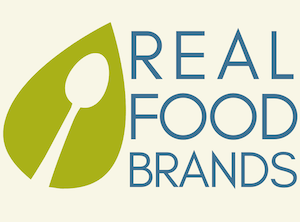When you start a business, there can be a lot of pressure to find instant success and rapid growth. The truth is, however, that you can build sustainable long-term success without needing to be the next unicorn brand.
Today on the Real Food Brands Marketing Podcast, host and Food Brand Strategist Katie Mleziva is talking to Elliot Begoun, founder of TIG, formerly known as The Intertwine Group. In this episode, we’ll talk about why some food businesses succeed and others fail, and why there is power in thinking about being a tardigrade, not a unicorn.
The Two Big Questions Elliot Works to Answer
“I got started in the food industry completely by accident,” Elliot says. After college, he took a job in the restaurant business to be able to afford a ring for his then-girlfriend and the rest is history.
“When I started TIG, it was to answer a few gnawing questions,” Elliot says, “and one of them was around the fact that $18 billion of market share has moved from the largest CPG companies to small emerging brands in the last ten years, but 80-90% of them fail within two years—how could that be?” And furthermore, why do some brands outperform others when everything else on paper looks similar?
How to Think About Your Go-to-Market Strategy
One thing that Elliot has identified is how successful brands implement a go-to-market strategy, which he calls a Growth Hypothesis. “We talk a lot in this industry about channel strategy, but that’s not at all how consumers think,” he says. Instead, he suggests consumers tend to shop on a continuum where one end is replenishment and the other is discovery, on both the physical and digital planes.
A good go-to-market strategy identifies where you can intersect that continuum effectively. “For every brand, those intersections are different,” Elliot says, “and the best brands find many, many intersections along that continuum to interact with their consumers.”
This hypothesis approach to test, learn and optimize is consistent with how Katie approaches Brand Strategy development with brands as well.
Why You Don’t Need to Be a Unicorn to Find Success
There’s a key stage for any small business that Elliot calls the “Valley of Death.” It’s where there a chance for big growth, but taking that risk is where a lot of brands fail. “There’s lots of money, and there’s lots of willingness to invest in great brands, but you have to prove that you’re a great brand before you can win that money,” he says. To do that, you need to be as efficient as possible with your capital, and Elliot has identified some metrics you can look at to keep track of it.
“Not to diminish the unicorn, but we call them unicorns because they’re mythical and magical and very rare,” Elliot says, “so if you’re chasing the next unicorn you know you’re signing up for some pretty poor odds of achievement.” You need to be dispassionate and objective about your business—unicorns are highly disruptive, category creators, or change habits or rituals. Most new entries into the natural products world aren’t that, they’re incremental improvements. “That doesn’t diminish the potential for building a great business,” Elliot says, and becoming what he calls a tardigrade—a resilient business that sticks around, evolves, and chugs on no matter what.
Now, let’s go shake up shopping carts!
Quotes:
“$18 billion of market share has moved from the largest CPG companies to small emerging brands in the last ten years, but 80-90% of them fail within two years—how could that be?” – Elliot Begoun
“Why is it that some founders and entrepreneurs seem to outperform others when everything else on paper looks similar?” – Elliot Begoun
“There’s lots of money, and there’s lots of willingness to invest in great brands, but you have to prove that you’re a great brand before you can win that money.” – Elliot Begoun
In This Episode:
- How Elliot got started in the natural products industry.
- How to develop a growth hypothesis.
- How your consumers make purchasing decisions.
- What the “Valley of Death” is and how to avoid it.
- The difference between an evolutionary brand and a revolutionary brand.
- Why the most important thing for growth-stage businesses is efficiency.
- Why you don’t need to be a unicorn to find success.
- What Elliot means when he talks about Tardigrades.
Resources:


